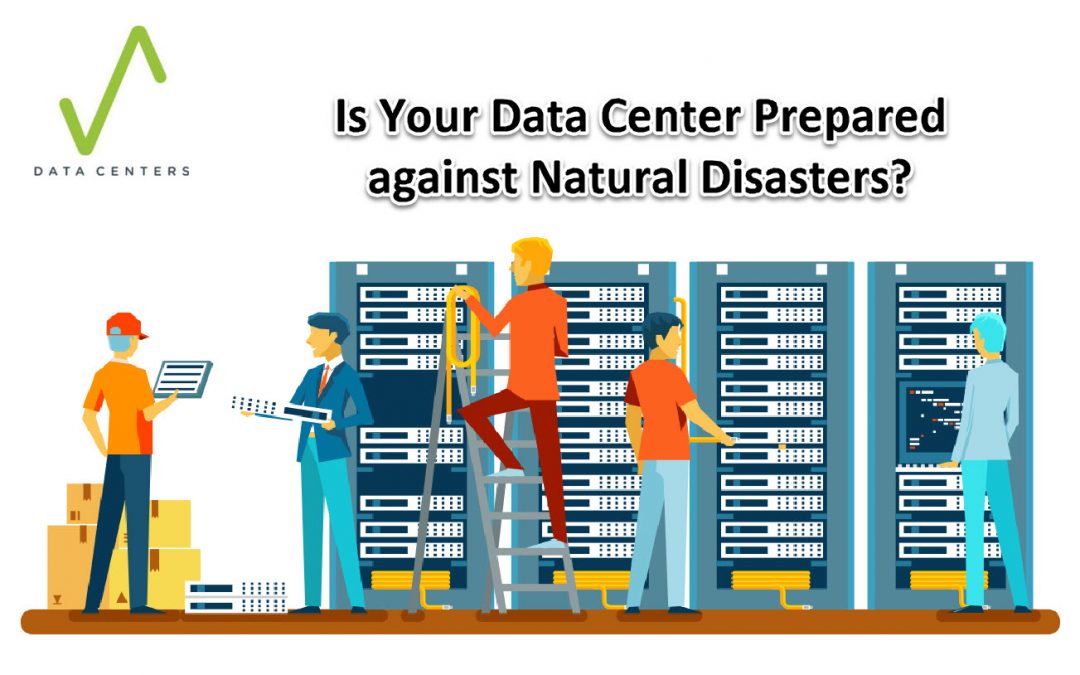Are Your Data Center Experts prepared against Natural Disasters?
Maintaining a data center operating at maximum performance is a difficult problem under the most effective of situations. Demand in power energy, cooling necessities, and security factors continues to be the top challenge for most data center experts and providers. However, looming at the back of their minds is a much greater issue, something that could present an even higher risk to their clients’ important data and resources and that is natural calamities.
Data centers must be ready to deal whichever catastrophe nature will send at them. They must be able to give protection to the client’s data in order to continue delivering services and keep their businesses operating.
They aren’t referred to as “disasters” for absolutely nothing.
Losing accessibility to data during or right after a natural disaster could be destructive for a business. An interruption in data and services can carry a plunging impact that can quickly ruin a company. Approximately 60% of companies that go through data loss caused by any type of disaster, usually go into bankruptcy in about six months.
It’s not simply just data loss that they need to fret about either; for companies that depend on data center cloud, losing accessibility to crucial applications because of disaster-related downtime indicates failing on customer opportunities and destruction to their brand. Even a short period of disruption can produce severe damage to a small company that operates in a slim bound.
Data centers have done their best effort by putting together extensive disaster plans that educate both existing and prospective clients of exactly how they prepare to give protection to their data and keep service uptime in the unlikely event of a natural disaster. While these preventive measures are important, data centers also need to learn how they will react when it comes to a disaster that may destroy even the best-laid strategies.
Advance Preparation
Modern and best data centers are pretty much well-prepared to deal with all sorts of natural disasters. They carry out extensive danger evaluations to determine what is the most likely threats and the possible effects that would arise from it. Having a full disaster response guidelines can help compile the necessary responses that data center staff need to take to address during these scenarios.
A well-managed data center secures that these emergency plans are available once disaster occurs and must carry out routine drills to make sure everyone understands what exactly to do when it happens.
22% of data center interruptions caused human inaccuracy, that is why these drills are useful in providing preparation for critical situations.
Given that every second a server is not working means financial reductions for customers. That is why a well-run data centers have a comprehensive system and power redundancies readily available to ensure they keep service uptime in case a natural disaster occurs. Regular assessments of backup power systems are important in making sure that data and critical procedures stay online and secure once main systems stop working.
Just like other preparedness drills, data center staff need to learn what measures to exert the moment redundancy systems don’t work as meant and how they would protect all the data center equipment . They should perform manual assistance to help keep systems operating, so they need to have some degree of training for this procedure.
Preparedness
While most data centers can hold up against small damages, current hurricanes have revealed the distressing truth that the local infrastructure across certain facilities is much more prone than the data centers itself.
For instance, during the time Hurricane Sandy hammered New York City, several backup generators stopped working simply because they are lacked fuel and could not be able to replenish because the street is flooded and obstructed fuel trucks from entering the city.
It’s also recommended for data center companies with several facilities and dedicated server; must have backup data in places far from the one affected by a natural disaster.
Data center experts and providers that has facilities dispersed throughout a broad geographic area must be able to guarantee that their operation won’t be immobilized in case a natural disaster occurs.

